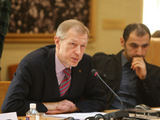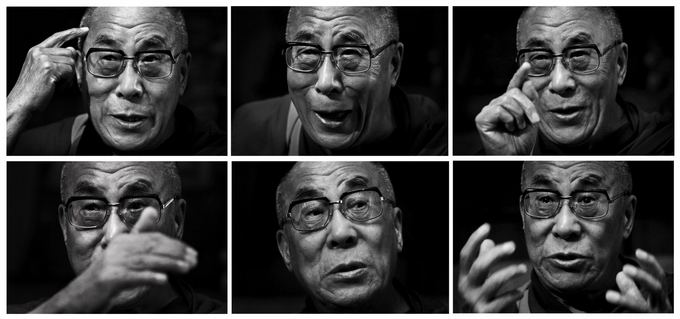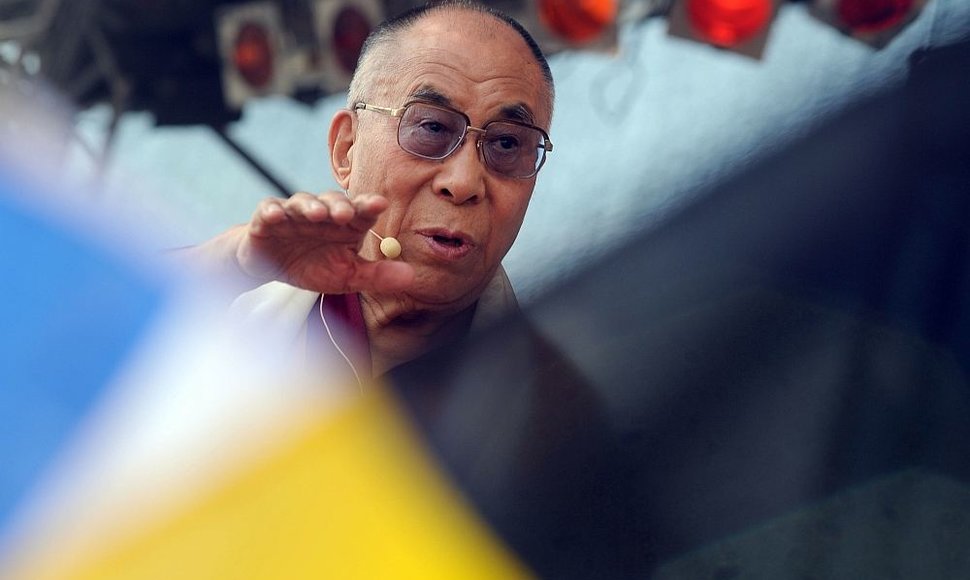78-year-old spiritual leader and laureate of the Nobel Peace Prize is visiting Lithuania on 12-13 September. He was invited by the parliamentary Tibet Support Group.
All leaders hide
The Seimas (parliament) Office even toyed with the idea of not admitting the Dalai Lama to the parliament building at all, but finally gave in.
As has become usual before the Dalai Lama's visits, Chinese diplomats are on alert – China's Ambassador to Vilnius Liu Zengwen has called on to the Seimas leadership; embassy staff have spoken to people at the Lithuanian Ministry of Foreign Affairs. The Chinese have been assured that no one from the country's higher-ups will see the Tibetan spiritual leader.
As Tomas Beržinskas, spokesman for Parliament Speaker Vydas Gedvilas, has told 15min, the Dalai Lama's visit was on the agenda of one of Seimas Board meetings. “Details of the visit and everything relating to it have been coordinated to recommendations by the Ministry of Foreign Affairs,” he added.
The recommendations, penned by the Foreign Ministry, advises all state leaders against giving any notice to the Dalai Lama's visit.
When asked why he would not meet with the guest, Prime Minister Algirdas Butkevičius dodged the issue by saying no one had offered him to.
 |
| Algis Kašėta |
“We looked into the options, looked for people who could meet [the Dalai Lama], but the signals we received were unequivocal enough,” says MP Algis Kašėta of the Liberal Movement, one of the organizers of the Dalai Lama's visit.
According to Kašėta, state leaders simply refuse to accept that Lithuania is free to pursue an independent foreign policy and does not have to stick to diplomatic clichés.
He adds that China acts similarly before every visit by the Dalai Lama – exerts pressure through its diplomatic corps, sends signals to make it known that one of the world's superpowers disapproves of any high-ranking officials receiving the Tibetan leader.
“But there's the issue of self-respect to consider,” the liberal MP adds. “The Baltic States differ from many other countries in this respect; having experienced similar fate, people and politicians here should be more sympathetic.”
According to Kašėta, during the Dalai Lama's visit in the Seimas, he will be received by one of the tree opposition parliamentary speakers.
“The Dalai Lama is well aware of political processes in play, about the growing influence of China, and emerging fears about economic interests. So this is not the first – nor will it be the last – time when our country's leaders shun such meetings,” he says.
Kašėta notes that US President Barack Obama himself met with the Tibetan spiritual leader several years ago. "If we are so concerned about what position the United States takes on one issue or another, this could be a good example to follow," he says.
Estonian president withstood Chinese pressure
In 2011, when the Dalai Lama was visiting Estonia, President Toomas Hendrik Ilves personally received the guest, even though the Chinese Embassy demanded that the meeting be cancelled.
"Afterwards, Estonian supermarkets was not emptied of Chinese goods, nor did economic or political relations collapse," Kašėta says.
During that visit, the Dalai Lama asked for support from the three Baltic States to Tibet which is officially part of China. "Do not forget our fate," he said.
 |
| The Dalai Lama was one of the first political leaders in the world to lend moral support to Lithuania's strife for independence |
When Lithuania declared independence from the Soviet Union in 1990, the Dalai Lama sent a greeting wire and visited the country the following year. After that, he returned to Lithuania a decade later, in 2001, and was received in the President's Palace by the then President Adamkus.
The media reported that the two had a private conversation. Adamkus came to the meeting straight from Santariškės Hospital where he had undergone a appendectomy a few days earlier.
In their conversation, they reminisced how the Dalai Lama had been one of the first political leaders in the world who had lent moral support to Lithuania's strife for independence.













